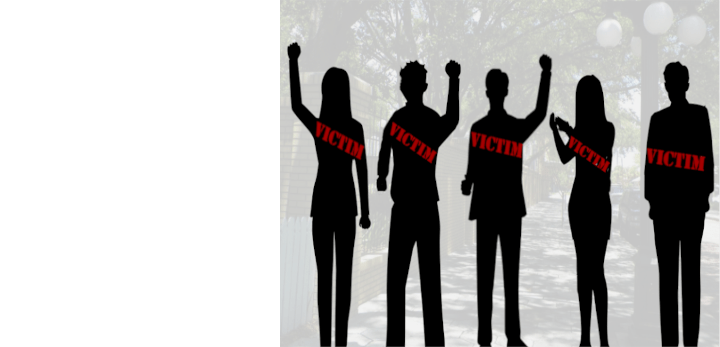Catholic League president Bill Donohue comments on the prevalence of victimhood:
They’re everywhere. Everywhere you go there is a victim. It’s more than a pastime—it’s an industry. Racism, in particular, is a big draw.
The Astros beat the Phillies this year in the World Series, but the big news, in some circles, was the absence of black baseball players on either team. To be sure, no one claimed that blacks were discriminated against in competing with whites playing professional baseball, probably due to the fact that there is no supporting evidence. Nonetheless, the lack of diversity, many commentators said, was indicative of a racial problem.
No one seemed to complain about the lack of Asians playing hockey or whites playing basketball. Nor is anyone complaining about the number of Hispanic jockeys. Perhaps these are oversights.
New Jersey Gov. Phil Murphy recently said that those who are talking about the crime issue are “playing the [race] card.” Michael Moore once observed that gun owners are basically racists.
Some teachers and commentators like to use a whiteboard to make their points. Earlier this year, a community organizer and author from Seattle said, “Whiteboards can be racist.” She also declared that “the study of physics” has racist elements.
The wife of newly elected senator John Fetterman, Gisele, said in late October that “swimming in America is very racist.” She did not comment on her husband when, in 2013, he tracked down an unarmed black jogger with his car, stopping him at gunpoint, simply because he heard some gunshots nearby.
Last year in Portland, Oregon a newly renamed high school chose an evergreen tree to be its mascot, but the vote had to be delayed because some said that trees were used to lynch blacks and were therefore racist.
Some contend that blacks who partake in bird watching may become victims of racism, and that is because white racists do not appreciate black bird watchers. “Systemic racism doesn’t stop at the park gates,” said the author of a book on this subject.
Social Psychology Quarterly published a study this year showing that when people adopt dogs, it takes longer for dogs with black names to be adopted than dogs with white names. For example, pit bulls are “a breed that is stereotyped as dangerous and racialized as Black.”
Pete Buttigieg, the Secretary of Transportation, has often commented on the existence of racist highways, and says it is his job to fix it. No progress report has been made.
A human rights expert at the U.N. said this fall that unless we first tackle racial injustice, the global climate crisis cannot be solved. Similarly, a few months ago a Penn State meteorologist said that racism was “inexorably” linked to climate change. Also, Mother Jones cited data that “people of color are exposed to 46% more nitrogen dioxide pollution each year than white people.”
Blacks do far less homework than whites and Asians, but that apparently is not a factor in their poor test scores. Two years ago an academic journal concluded that higher temperatures account for their performance, citing the lack of air conditioning. The New York Times said this is “the latest evidence that the burdens of climate change fall disproportionately on people of color.”
Not all victims are black. In June, pop star Lizzo changed the lyrics of her new song, “Grrrls,” after making what her critics said was an “ableist slur” when she sang, “I’m a spaz.” She said she understands the power of words “as a fat black woman in America.”
A study was published at the end of last year showing that the temperature in offices was typically sexist: woman don’t like AC’s being too cold and because it makes them feel uncomfortable. Newsweek.com ran a piece titled, “Office Aircon Is Sexist to Women, Study Finds.”
When Taylor Swift steps on her special bathroom scale, it may read “fat.” Her fans said this was an example of “fatphobia.” This same phenomenon, “fatphobia,” made a big splash on TikTok a few weeks ago when a fat woman said, “I’m a fat woman traveling.” She said she has a hard time fitting into an airline seat. This has discouraged fat people from flying, which, she said, was classic “fatphobia.”
President Biden agrees. On October 26, he said it was unfair to charge more money for bigger seats because “they hit marginalized Americans the hardest, especially…people of color.”
Talking about “people of color,” Yi-Fen Chou learned that his poem was selected for inclusion in the Best American Poetry anthology for the year 2015. He was delighted. However, his real name is Michael Derrick Hudson. Why the name change? When he submitted his poem for publication under his real name, he was rejected by 40 publishers, but when he adopted an Asian name, he struck gold!
It seems victimhood has many faces.







